Around 200 attend conference on eco-IPs
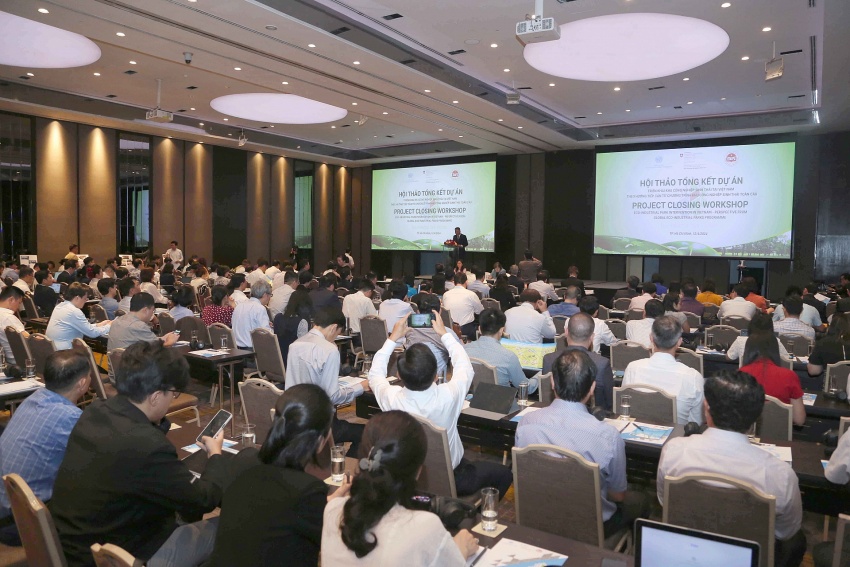 |
The Eco-IP Intervention is funded by Switzerland's State Secretariat for Economic Affairs and implemented by the United Nations Industrial Development Organisation (UNIDO) and the Ministry of Planning and Investment (MPI).
The main objective of the conference was to raise awareness about policy and action plans on green growth strategies and the circular economy, and discuss their principles and benefits. The event also facilitated policy dialogue and collaboration among stakeholders to develop and implement supportive regulations and practices. In addition, it also promoted knowledge sharing, capacity building, and innovation to support the transition towards sustainable and resilient industrial development in Vietnam.
"The transition from a linear economic model to a circular one offers a practical solution to address the complex relationship between the economy and the environment. This shift fosters long-term resilience, creates new economic opportunities, and delivers environmental and social benefits," said Le Thanh Quan, director general of the Department of Economic Zones Management under the MPI.
"By integrating the principles of circular economy, such as designing products for longevity, reusing materials, and implementing efficient waste management systems, Vietnam aims to mitigate environmental damage while enhancing economic productivity and social benefits. By adopting initiatives like the Eco-IP approach, where industries collaborate to share resources and minimise waste, Vietnam can reduce its environmental footprint and create new opportunities for innovation and green growth," Quan added.
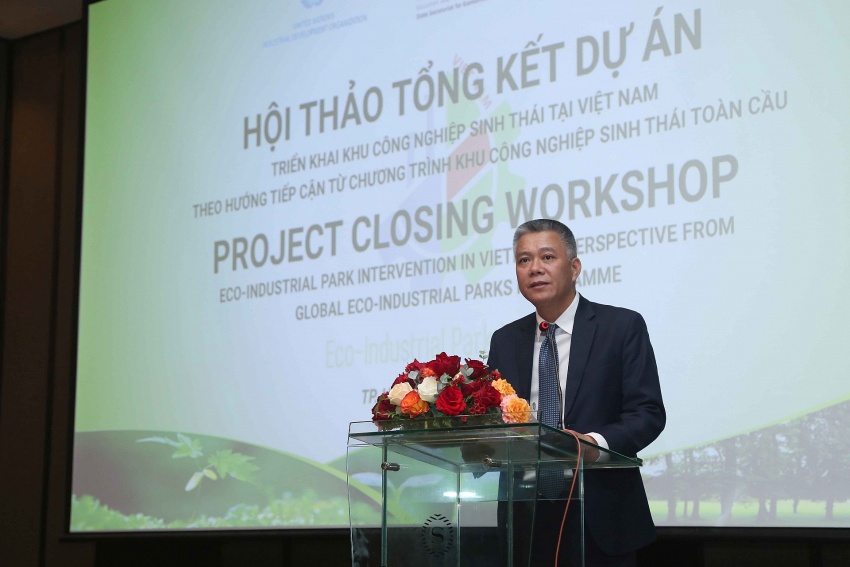 |
| Le Thanh Quan, director general of the Department of Economic Zones Management under the MPI |
At the first session, participants focused on the significance of eco-IPs as catalysts for promoting circular economy principles, shedding light on the pivotal role these parks play in driving sustainable development. Experts also spoke about how eco-IPs serve as dynamic hubs, where industries converge to optimise resource use, minimise waste, foster innovation, and implement eco-approaches. They also showed examples and case studies from Vietnam and other countries.
At the parallel session, the speakers highlighted the pivotal role of the private sector in advancing circular economy initiatives through transformative changes in businesses to drive sustainability. Experts presented circular economy initiatives realised by the private sector that followed mainstream circular economy principles across several industries.
In addition, IP developers shared their experiences and highlighted the approaches, strategies, and importance of policy coherence to overcome the barriers to fully realising the potential of circular economy practices.
At the plenary session, participants elaborated on the testing mechanisms for the circular economy in various industry sectors. Drawing on examples from megacities like Ho Chi Minh City and Haiphong, the speakers provided valuable insights into the development trends of green growth and circular economy strategies to underscore the importance of city policies that prioritise circular economy. The session also demonstrated how proactive measures can spur economic development while safeguarding the environment, driving Vietnam towards a more prosperous and environmentally sustainable future.
Nilgun Tas, an international expert said, "The circular economy is now at the forefront of the competitiveness agenda for various industrial sectors, such as textiles, electronics, plastics, packaging, vehicles, metals, cement and food. Circular economy practices are not just environmentally beneficial but also economically viable, and as a result, improve the competitiveness of IPs."
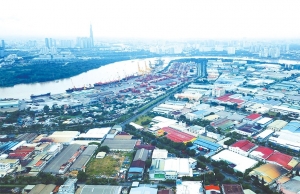 | Vietnam taking stock of industrial park capacities Many localities want to expand high-tech industrial parks to resolve the overload of existing parks and simultaneously welcome new high-quality capital. |
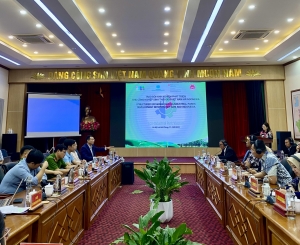 | Vietnam and Indonesia share experience to develop eco-industrial park Vietnam and Indonesia are sharing their experience in the development of eco-industrial parks as part of the Global Eco-industrial Parks Programme (GEIPP). |
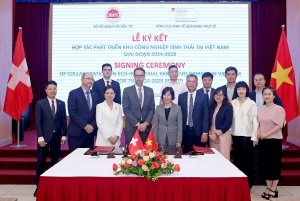 | MPI and SECO to partner on eco-industrial park development The Department of Economic Zones Management under the Ministry of Planning and Investment (MPI) and Switzerland's State Secretariat for Economic Affairs (SECO) signed an MoU on October 25 for the development of eco-industrial parks in Vietnam between 2024 and 2028. |
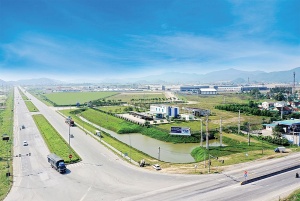 | WHA Group takes the lead in smart eco-industrial park model for Nghe An As part of Thailand’s WHA Group, WHA Nghe An is working to help develop the province sustainably thanks to the international-standard smart eco-industrial park model. |
What the stars mean:
★ Poor ★ ★ Promising ★★★ Good ★★★★ Very good ★★★★★ Exceptional
Related Contents
Latest News
More News
- Sembcorp Development secures licence for VSIP in Khanh Hoa (December 31, 2025 | 18:54)
- Prodezi Long An advances towards integrated eco-centric industrial park model (December 26, 2025 | 11:16)
- Amata to develop $185 million Amata City Phu Tho (December 23, 2025 | 17:49)
- Work starts on Nhat Ban – Haiphong Industrial Zone Phase 2 (December 19, 2025 | 16:43)
- Becamex – Binh Phuoc drives sustainable industrial growth (November 28, 2025 | 15:22)
- South Korean investors seek clarity on IP lease extensions (November 24, 2025 | 17:48)
- CEO shares insights on Phu My 3 IP’s journey to green industrial growth (November 17, 2025 | 11:53)
- Business leaders give their views on ESG compliance in industrial parks (November 15, 2025 | 09:00)
- Industrial parks pivot to sustainable models amid rising ESG demands (November 14, 2025 | 11:00)
- Amata plans industrial park in Ho Chi Minh City (November 04, 2025 | 15:49)

 Tag:
Tag:




















 Mobile Version
Mobile Version